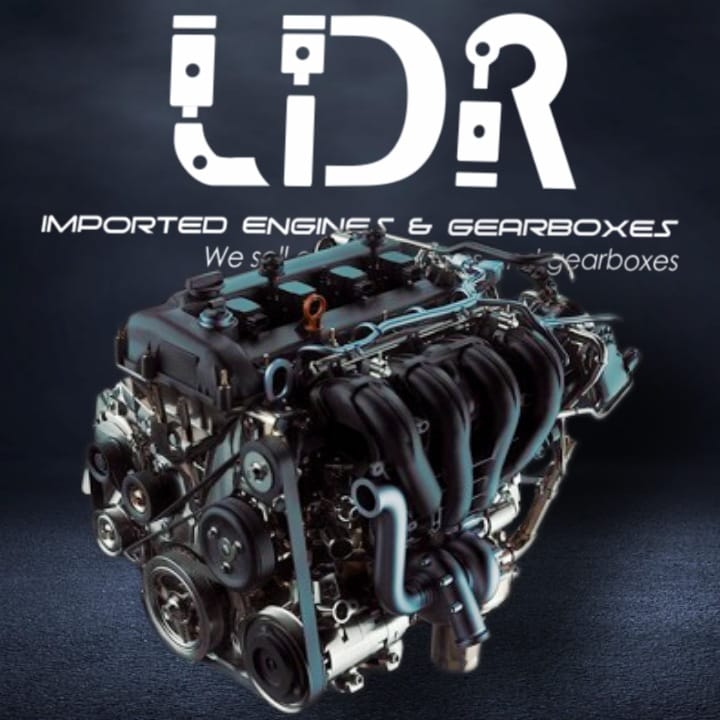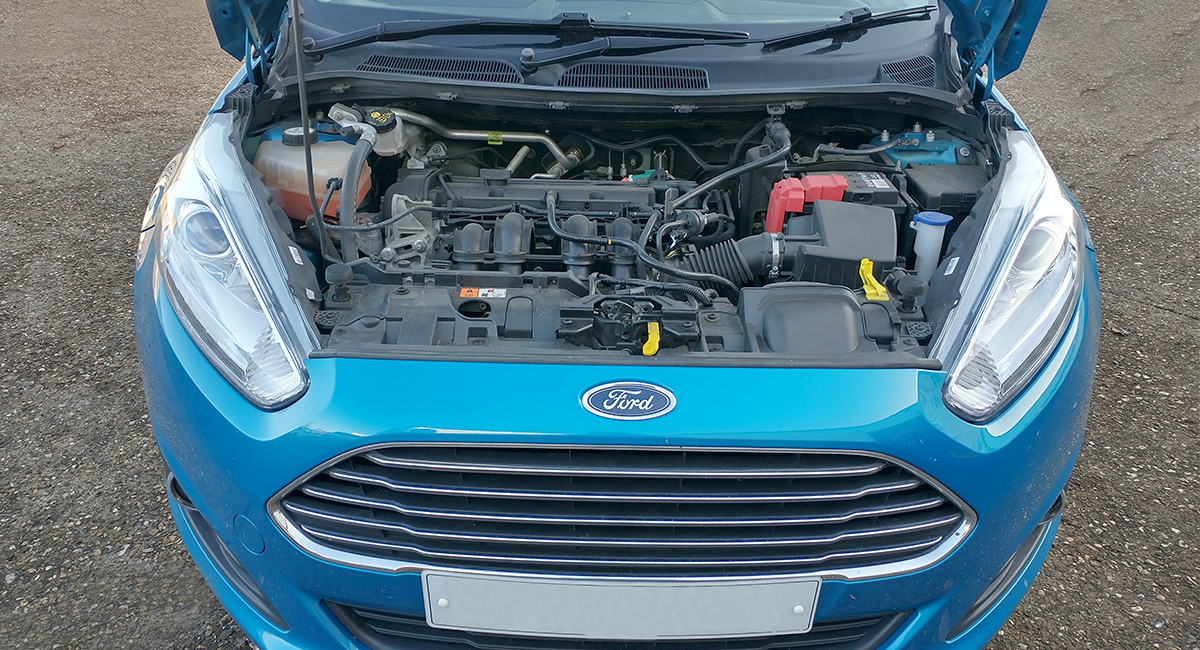Troubleshooting Ford Fiesta Engine Problems: What You Need to Know
Troubleshooting Ford Fiesta Engine Problems: What You Need to Know
Blog Article
The Future of Engines: Technologies Driving Sustainable Power Solutions
As the auto sector navigates the important shift in the direction of sustainability, the future of engines is increasingly defined by groundbreaking technologies. Electric engine advancements, together with encouraging developments in hydrogen fuel cells and biofuels, are reshaping the landscape of power services.
Electric Engine Advancement
The evolution of electrical engine growths represents a critical shift in the automobile and aerospace sectors, driven by the urgent demand for lasting choices to nonrenewable fuel sources. This transition is characterized by considerable innovations in battery technology, power electronics, and electric motor style, which collectively enhance the efficiency and performance of electric engines.
Recent innovations have actually brought about the production of lighter, more energy-dense batteries, such as lithium-silicon and solid-state batteries, which promise longer ranges and much shorter charging times. In addition, renovations in electrical motor effectiveness, such as using long-term magnets and progressed cooling down systems, allow electric engines to run efficiently under varying conditions. These improvements not just enhance car performance but additionally add to a reduction in total power usage.
Furthermore, the integration of innovative software program formulas has enhanced energy management in electric vehicles, enabling regenerative braking and predictive charging strategies. As makers progressively embrace electrical propulsion, the aerospace and automotive fields are seeing a standard change towards greener modern technologies. This development not just meets governing demands yet likewise aligns with customer choices for eco-friendly transport options, solidifying electrical engines as a cornerstone of future lasting mobility.
Improvements in Biofuels
As the automobile and aerospace industries significantly prioritize sustainable power sources, developments in biofuels arise as a complementary option to electric engines. Biofuels, stemmed from natural materials such as crops, waste, and algae, offer an innovative opportunity for lowering greenhouse gas exhausts and reliance on nonrenewable fuel sources.
Recent research study has concentrated on improving the performance and sustainability of biofuel manufacturing. Second-generation biofuels utilize non-food feedstocks, reducing competition with food supply and lowering environmental impact. Developments in synthetic biology have actually made it possible for the engineering of microorganisms to produce biofuels much more efficiently, leading to higher yields and lower production costs.
In addition, the growth of drop-in biofuels permits smooth assimilation right into existing facilities, allowing a smoother shift for markets typically dependent on fossil fuels. ford fiesta engine. These gas can be used in existing engines without alterations, promoting their adoption throughout numerous markets
Investments in biofuel innovation, together with encouraging plans, are necessary to drive development and scalability. As the global area seeks to battle environment adjustment, biofuels provide a pragmatic, instant service that aligns with the overarching goal of sustainability in transport and air travel.
Hydrogen Fuel Cell Technology
An expanding variety of business and scientists are checking out hydrogen fuel cell modern technology as a feasible alternative to standard source of power in transportation and power systems. This technology transforms chemical energy from hydrogen right into power with an electrochemical reaction, with water as the only by-product, making it an eco-friendly option.
The core of hydrogen gas cells is the gas cell stack, where hydrogen molecules are divided into electrons and protons. The flow of electrons creates power, while protons move via a membrane to incorporate with oxygen from the air, forming water. This procedure results in high performance and low discharges, positioning hydrogen gas cells as a crucial gamer in the transition to lasting energy.
Substantial developments have actually been made browse around this site in improving the resilience and efficiency of fuel cells, along with decreasing prices through innovative production techniques. Moreover, the growth of hydrogen production methods, such as electrolysis powered by sustainable energy sources, enhances the sustainability of the overall system. As facilities for hydrogen refueling expands and manufacturing approaches come to be more effective, hydrogen fuel cell technology holds wonderful promise for decarbonizing various sectors, including heavy-duty transport and stationary power generation.
Hybrid Solutions and Their Effect
Hybrid systems represent a significant advancement in sustainable engine modern technology, combining typical inner combustion engines with electric propulsion to maximize power effectiveness and decrease emissions (ford fiesta engine). This twin technique enables cars to utilize both power resources, making it possible for greater versatility in energy consumption and reducing dependence on nonrenewable fuel sources

In addition to ecological benefits, crossbreed systems use consumers a sensible transition in the direction of totally electrical lorries. They relieve range stress and anxiety by integrating the convenience of fuel with the advantages of electric propulsion, making them an eye-catching choice for a wider audience.
The Duty of AI in Engine Layout
Leveraging advanced algorithms and machine knowing strategies, the auto industry is progressively integrating expert system (AI) into engine style procedures. AI boosts the efficiency and efficiency of style by assessing vast datasets to determine optimum setups and efficiency specifications. This capacity allows designers to simulate various operating conditions and anticipate engine habits under several circumstances, considerably minimizing the moment and price connected with typical prototyping methods.
Additionally, AI helps with the advancement of sophisticated materials and combustion processes tailored for sustainability. By optimizing fuel efficiency and decreasing emissions, AI-driven designs straighten with international campaigns targeted at decreasing the carbon footprint of automobile engines. Device knowing algorithms can additionally forecast upkeep demands, leading to enhanced dependability and durability of pop over to this site engine elements.
Furthermore, AI contributes in the integration of electrification modern technologies, such as hybrid systems, where it can enhance battery administration and power healing processes. As the market relocates in the direction of even more sustainable power solutions, the duty of AI in engine layout comes to be significantly important, driving innovation and enhancing the efficiency of future engines. Eventually, the collaboration in between AI and engine style heralds a brand-new age of smarter, cleaner, and more reliable automobile technologies.

Final Thought
To conclude, the future of engines is being shaped by a convergence of cutting-edge modern technologies that prioritize sustainability. Electric engine developments, biofuel advancements, hydrogen fuel cells, and hybrid systems jointly add to a substantial decrease in exhausts and environmental influence. Furthermore, the combination of expert system in engine layout boosts effectiveness and performance. These transformative options underscore a commitment to producing a cleaner, much more lasting automotive landscape, ultimately benefiting both culture and the environment.
Electric engine developments, alongside encouraging advancements in hydrogen fuel cells and biofuels, are improving the landscape of power options. Furthermore, enhancements in electric motor performance, such as the usage of long-term magnets and advanced cooling systems, enable electrical engines to operate efficiently under differing conditions. By optimizing gas effectiveness and decreasing exhausts, AI-driven styles align with international initiatives intended at decreasing the carbon footprint of auto engines. As the market relocates towards even more lasting power services, the duty of AI in engine layout ends up being increasingly vital, driving technology and improving the performance of future engines. Electric engine advancements, biofuel advancements, hydrogen gas cells, and hybrid systems jointly contribute to a significant decrease in emissions and ecological impact.
Report this page